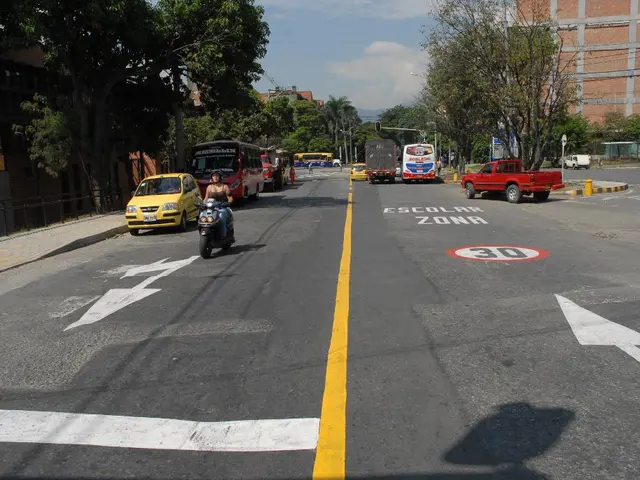Disrupted train traffic in Paris due to an unexploded World War II bomb, causing significant delays.
In the heart of Paris, one of the world's busiest train stations, Gare du Nord, has been thrown into disarray due to the discovery of an unexploded bomb from World War II. The bomb, approximately 1.55 miles (2.5 kilometers) from the station, was found during landscaping work in St. Denis, a suburb north of Paris.
The explosive, about 3 feet (0.91 meters) long and more than 400 pounds (181 kilograms), was found on the Paris train network's H line, which services the region north of Paris. The bomb's discovery has caused significant delays and cancellations of trains in and out of Paris, with SNCF, the state-owned railway company, expecting normal train traffic to resume only by Friday evening.
A large security perimeter was established for the safe removal of the bomb, and the international rail service Eurostar has announced the cancellation of all trains in and out of Gare du Nord. Some trains that ordinarily pass through Gare du Nord will instead pass through Gare de Lyon.
The discovery of such explosive relics is not uncommon. Over 2,000 tons of munitions are found and dealt with annually in both Germany and the UK. Belgium is still dealing with explosive relics of World War I, which ended over a century ago.
The increased detonation-proneness of these bombs can be attributed to various factors, such as the formation of salts, contamination with metals in the ground, or loss of structural integrity over the decades. A study published last year highlighted the increased likelihood of live ordnance from World War I and II detonating as they age.
This isn't the first instance of such a disruption. In October, a 500-pound American bomb from World War II exploded under a taxiway of Japan's Miyazaki Airport, causing the cancellations of more than 80 flights.
Approximately 60,000 pieces of unexploded ordnance are found each year, serving as a stark reminder of the past conflicts that continue to affect our present. As these relics are safely removed, normal train services will resume, ensuring the smooth flow of travel in the city of love once again.
Read also:
- Heavy Rain in Delhi Causes Yamuna Flooding, Impacting DMRC's Access to Yamuna Bank Metro Station - Current Information
- Voting location now active for citizens to cast their ballots.
- "Local Democrats in the Bronx offering support for Zohran"
- Federalist Society Deserves Gratitude from Trump for Judicial Appointments








